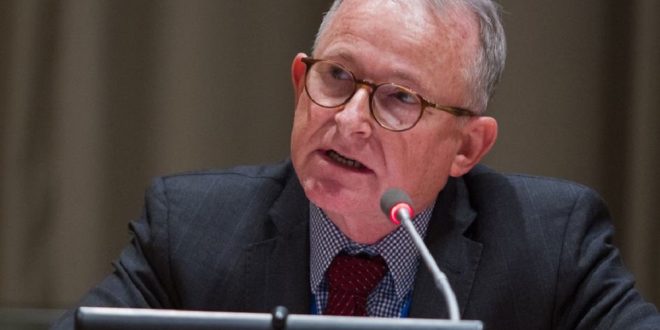UN urges Muslim nations to help address Afghan women’s suffering

KABUL – Richard Bennett, the United Nations Special Rapporteur for Human Rights in Afghanistan, has issued a pressing call for Muslim nations to address the pervasive restrictions faced by women and girls in Afghanistan. The focus of Bennett’s plea lies in dispelling the misconception of inherent restrictions on female education in Islam. He emphasized that progress in normalizing the situation hinges on enabling women and girls to reclaim their positions in the workforce and education system.
Expressing cautious optimism for potential improvements, Bennett underscored the need for concerted efforts from countries in the region and the broader Islamic world. His appeal revolves around ensuring that women and girls have unimpeded access to education and employment, emphasizing that Islam imposes no restrictions on education beyond the primary level.
Simultaneously, Rina Amiri, the US Special Envoy for Human Rights in Afghanistan, echoed these concerns, calling for an immediate end to the Taliban’s prohibition on women working in non-governmental organizations (NGOs). Amiri voiced deep apprehension regarding the severe consequences of this ban on Afghan female NGO and UN staff, posing a significant threat to critical humanitarian assistance.
With the one-year mark of edicts further restricting women’s participation in education and employment approaching, Amiri advocated for the lifting of these bans, aligning with the sentiments of the Afghan people. The continuous imposition of restrictions by the Taliban has garnered both domestic and international criticism, sparking protests against limitations on women’s rights, education, and employment.
The situation has raised concerns among residents of Kabul, particularly regarding its impact on women who often serve as the sole providers for their families. Despite widespread domestic demands and international protests, the Taliban has maintained these restrictions on women and girls, curtailing their right to work, education, and freedom in the country for over two years and four months. The situation remains a focal point of contention, drawing attention from the global community.
Culled from Afghanistan Times

